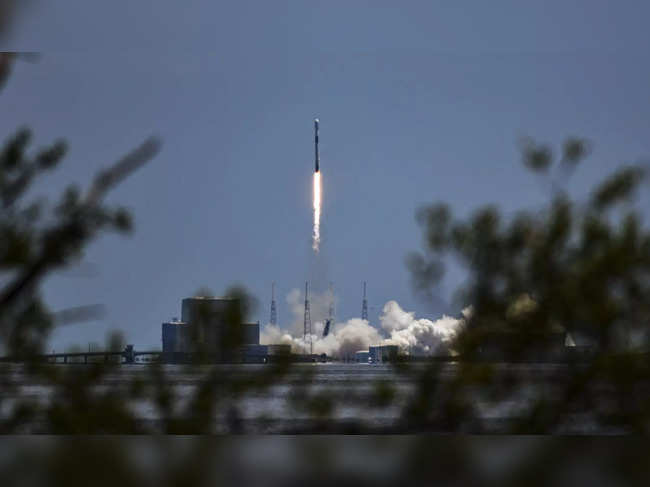 PTI
PTI“It seems to be a good policy, they’ve covered a lot of ground, and this is by and large in tune with global policies,” said Ajey Lele, senior fellow in Manohar Parrikar Institute for Defence Studies and Analyses (MP-IDSA), leading think tank for defence and strategy research.
Indian National Space Promotion and Authorisation Centre (IN-SPACe) will be the nodal authority for all commercial space-related activities for Indian space technology companies.
“Any Indian entity is required to seek authorisation from IN-SPACe to establish and operate a launch site and to undertake the launching of space object(s) from a designated launch site,” the draft policy reads. “The authorisation is required even if an Indian entity is establishing a launch site or undertaking a launch outside the territory of India.”
Industry executives particularly welcomed the move to make IN-SPACe – envisioned as a nodal agency for the government to liaise with space technology companies – for companies to get all approvals required for spaceflight.
Discover the stories of your interest

“It’s like a single window system where IN-SPACe is the only authority involved, which is awesome from a paperwork standpoint,” said Srinath Ravichandran, cofounder and CEO of Agnikul Cosmos, a Chennai-based startup developing launch vehicles.
“They’ve also clearly stated what they’ll be asking, so for anyone building a launch port or launch vehicle like us, we already know what they expect,” Ravichandran said.
The draft policy stipulates the exact requirements for IN-SPACe to grant authorisations for each of the activities, including technical, safety and compliance requirements, leaving no ambiguity for companies.
Naga Bharath Daka, cofounder and COO of Hyderabad-based Skyroot Aerospace, said the draft policy covers “all plausible scenarios of operation” for a private launch vehicle company like his firm.
“It would have been helpful if more clarity was provided with regard to timeline for processing respective applications and also clarity regarding indemnity caps with regard to insurance cover needed towards fulfilment of national and third-party liabilities,” Daka said.
The main concern experts raised is timely implementation of the policy.
Also Read: Top innovator Agnikul is ready to soar, above and beyond
“This should not be only departmental exercise,” said Lele of MP-IDSA. “After the draft is finalised, it should quickly move to the cabinet and the final approvals should be taken. Only then the policy will have some teeth.”
This is the third draft policy that the Department of Space has released since India opened its space sector to private companies last year. Earlier, it had released draft policies for satellite communications and remote sensing.
The department has invited comments on the draft space transportation policy till July 21.
In the case of a launch outside India, the policy requires companies to comply and receive approvals from administrations in the territory where the launch will be performed.
The policy also clearly calls out requirements for authorisation of financial liabilities or insurance cover by space technology companies, towards the fulfilment of India’s liabilities as per international space agreements.
For launch sites outside the territory of India, the policy states that IN-SPACe or the Union of India will not bear any liability for the same.
















 Get Unlimited Access to The Economic Times
Get Unlimited Access to The Economic Times
